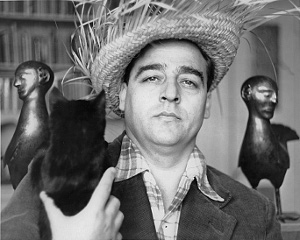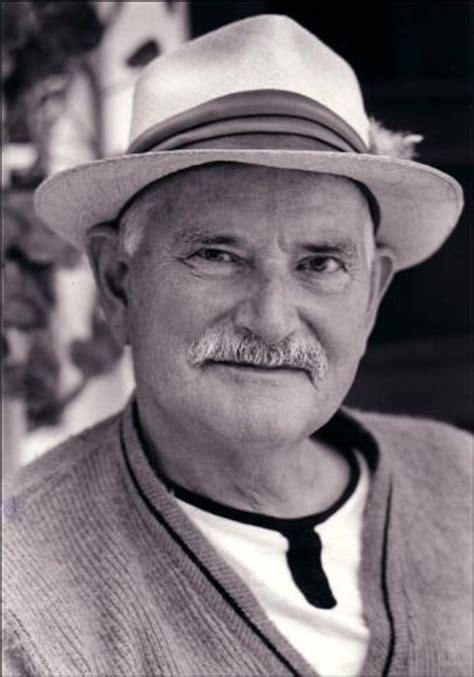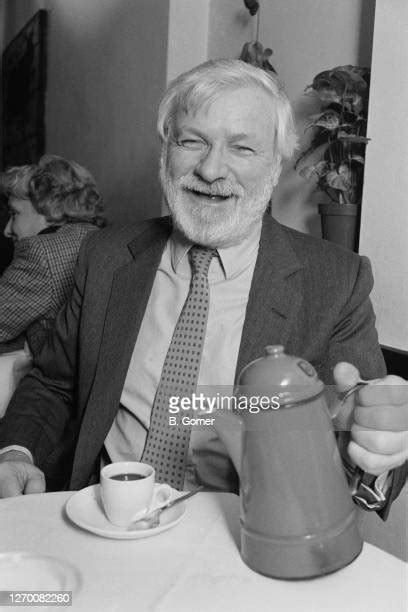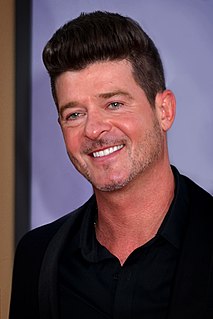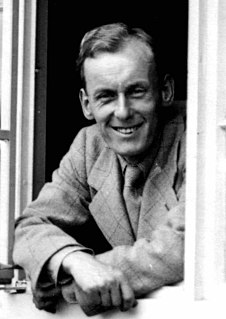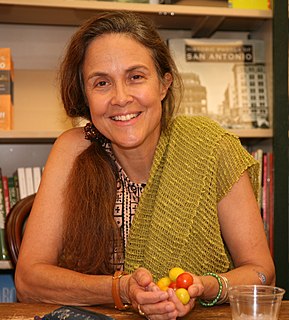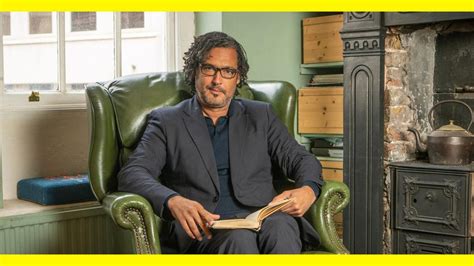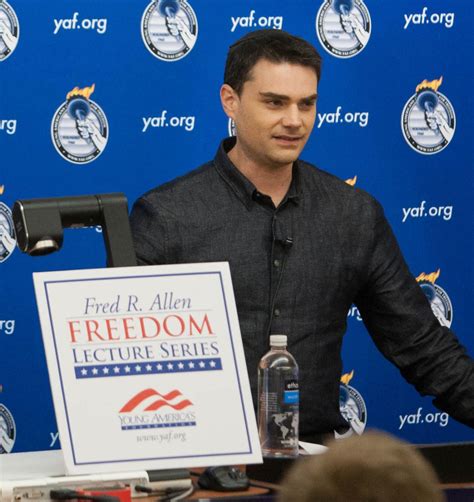Top 1200 English Writing Quotes & Sayings - Page 16
Explore popular English Writing quotes.
Last updated on December 19, 2024.
I've been writing for a long time, since the late '60s. But it hasn't been in the same form. I used to write scripts for television. I wrote for my comedy act. Then I wrote screenplays, and then I started writing New Yorker essays, and then I started writing plays. I didn't start writing prose, really, until the New Yorker essays, but they were comic. I didn't start writing prose, really, until the '90s. In my head, there was a link between everything. One thing led to another.
I want to say unequivocally that while I cherish every person who comes from anywhere, who comes here legally and seeks to pursue happiness, and I hope all of them decide to stay and become American citizens, but I want them to become American. And part of becoming American involved English. It is vital historically to assert and establish that English is the common language at the heart of our civilization.
I acknowledge Mike Leigh and Ken Loach. They are prostlytizers of English socialism preaching to the converted and telling us what we already know. Cinema is best served away from documentary neo-realism. I come from a tradition of post-post-Italian neo-realism in England, where we've produced the best television in the world. But to paraphrase Truffaut, the English have no visual imagination.
I can hardly believe that I even know this, but I am aware that Noah Webster's original dictionary, apart from being the first truly American lexicography, was a kind of line in the sand. It claimed a very discrete, American form of the English language, explicitly to compare it to the English of our erstwhile colonial masters who had been operating under Dr. Johnson's dictionary rules for well over a century.
I don't consider myself to be a painter. I think of myself as someone who has used the medium of painting in an attempt to extend - give an extra dimension to - the medium of words. It happens very often my writing with a pen is interrupted with my writing with a brush - but I think of both as writing.
I remember I was very taken with a book called DreamTigers by [Jorge Luis] Borges. He was at the University of Texas, Austin, and they collected some of his writings and put them in a little collection. It's called DreamTigers in English, but it doesn't exist in Spanish. It's a little sampler. But that collection in English is what struck me, because in there he has his poems, and I was a poet as well as a fiction writer.
I am glad that the country world...retains a power to use our English tongue. It is a part of its sense of reality, of its vocabulary of definite terms, and of its habit of earthly common sense. I find this country writing an excellent corrective of the urban vocabulary of abstractions and of the emotion disguised as thinking which abstractions and humbug have loosed upon the world. May there always be such things as a door, a milk pail, and a loaf of bread, and words to do them honor.
I wish I had time to do more reading, but I just haven't had much time. But I still find time for writing. I've always preferred writing over reading, even though those things do go hand in hand. But when I do have time, even if it's not writing music, just writing in general - ideas and stories and things like that.
We had probably our best ever Player of the Year Dance last week. You elected Dennis Wise as Player of the Year. Dennis accepted his award mimicking Vialli, whereupon Zola shouted 'Speak English', Dennis switched to his normal Cockney voice only for Zola to shout 'You're still not speaking English'.
Trevor realized that the odd thing about English is that no matter how much you screw sequences word up up, you understood, still, like Yoda, will be. Other languages don't work that way. French? Dieu! Misplace a single le or la and an idea vaporizes into a sonic puff. English is flexible: you can jam it into a Cuisinart for an hour, remove it, and meaning will still emerge.
There is one thing about Englishmen, they won't fix anything till it's just about totally ruined. You couldn't get the English to fix anything at the start. No! They like to sit and watch it grow worse. Then, when it just looks like the whole thing has gone up Salt Creek, why, the English jump in and rescue it.
I had a checklist in my mind of the things that make a biography practical. Is the source material centralized? Is it easy to find? Are there new primary sources that no one has ever had access to? Are all the sources in English? If they're not, are they in a language that you speak? And I realized that not only is Armstrong the most important figure of Jazz in the 20th Century, but he's a perfect subject for a biography for all of these reasons. I had always loved his music and I had been fascinated in him as a personality. And that's really the key to writing a biography.
I got sent off to my grandmother's for five months and watched a lot of TV and had a lot of grilled cheese with butter on it - because she was English and put lots of butter on everything - and yogurt. The English are big on dairy products, you know? I'd have an earache, and she'd be like, "Here, have some milk." Wonderful woman, but she had kind of screwed-up nutrition ideas.
When I wrote for Jordan Knight, I was 17 or 18, they were pretty much the only songs I was writing. By the time people like Christina or Usher came around, I was able to know that I was writing for different points of view and people that might not want to say certain things. So you have to be considerate of whichever artist you're writing for.
When I turned 11, we had to leave East Germany overnight because of the political orientation of my father. Now I was going to school in West Germany, which was American-occupied at that time. There in school, all children were required to learn English and not Russian. To learn Russian had been difficult, but English was impossible for me.
I started a writing class, not in service of writing a script or writing anything specific. I've just really been enjoying that, and oddly the group, not by design, but it just happened to be all women, and there were three women who gave birth this fall while we were all in class, and there's just something really great about getting to know these women through their stories and what they're writing about.
One should not as a rule reveal one's secrets, since one does not know if and when one may need them again. The essential English leadership secret does not depend on particular intelligence. Rather, it depends on a remarkably stupid thick-headedness. The English follow the principle that when one lies, one should lie big, and stick to it. They keep up their lies, even at the risk of looking ridiculous.
Read a lot. But read as a writer, to see how other writers are doing it. And make your knowledge of literature in English as deep and broad as you can. In workshops, writers are often told to read what is being written now, but if that is all you read, you are limiting yourself. You need to get a good overall sense of English literary history, so you can write out of that knowledge.
I didn't know how story worked. So, when writing the screenplay, people introduced me to the science of it. And I'm grateful. I'll probably use that information for the rest of my career, in terms of writing novels or writing stories. And then, of course, to help me live a better story, a more meaningful story
Climate helps to shape the character of peoples, certainly no people more than the English. The uncertainty of their climate has helped to make the English, a long-suffering, phlegmatic, patient people rather insensitive to surprise, stoical against storms,. slightly incredulous at every appearance of the sun, touched by the lyrical gratitude of someone who expects nothing and suddenly receives more than he dreamed.
Bad acting, like bad writing, has a remarkable uniformity, whether seen on the French, German, or English stages; it all seems modeled after two or three types, and those the least like types of good acting. The fault generally lies less in the bad imitation of a good model, than in the successful imitation of a bad model.
By being so long in the lowest form [at Harrow] I gained an immense advantage over the cleverer boys. . . . I got into my bones the essential structure of the ordinary British sentence - which is a noble thing. Naturally I am biased in favor of boys learning English; I would make them all learn English: and then I would let the clever ones learn Latin as an honor, and Greek as a treat.
I had the advantage, that I know Swedish. So I had the Swedish book and I had a lot of English translations, and German translations, and I did everything to make the best English translation of August Strindberg's Miss Julie I could. And then, there I went. "Oh! I think she's thinking this, but I think she should say it!" And so on. It's wonderful to do that.
For most of us the rules of English grammar are at best a dimly remembered thing. But even for those who make the rules, grammatical correctitude sometimes proves easier to urge than to achieve. Among the errors cited in this book are a number committed by some of the leading authorities of this century. If men such as Fowler and Bernstein and Quirk and Howard cannot always get their English right, is it reasonable to expect the rest of us to?
English character and English freedom depend comparatively little on the form which the Constitution assumes at Westminster. A centralised democracy may be as tyrannical as an absolute monarch; and if the vigour of the nation is to continue unimpaired, each individual, each family, each district, must preserve as far as possible its independence, its self-completeness, its powers and its privilege to manage its own affairs and think its own thoughts.
Writing has taught me a lot - though far from everything - about writing, so as time has passed, it has become more pleasurable if not easier. I've done other things in life, but writing is by a factor of 10 the most difficult among them. And, of course, you never achieve what you set out to achieve, so you must keep on trying to do better.
It may be a mere patriotic bias, though I do not think so, but it seems to me that the English aristocracy is not only the type, but is the crown and flower of all actual aristocracies; it has all the oligarchical virtues as well as all the defects. It is casual, it is kind, it is courageous in obvious matters; but it has one great merit that overlaps even these. The great and very obvious merit of the English aristocracy is that nobody could possibly take it seriously.
An important United Nations environmental conference went past 6:00 in the evening when the interpreters' contracted working conditions said they could leave. They left, abandoning the delegates unable to talk to each other in their native languages. The French head of the committee, who had insisted on speaking only in French throughout the week suddenly demonstrated the ability to speak excellent English with English-speaking delegates.
One of the producers, Wonjo, was an amazing interpreter. I don't think we really knew how it was going to work at the beginning. Yet it was something that a couple of days into it seemed so seamless and it wasn't something that we noticed or thought about. A couple of times I cornered him and forced him to speak English but we didn't speak much English at all. That said, I don't think anything was ever lost in translation. It was all very easy.
Being someone who had had a very difficult childhood, a very difficult adolescence - it had to do with not quite poverty, but close. It had to do with being brought up in a family where no one spoke English, no one could read or write English. It had to do with death and disease and lots of other things. I was a little prone to depression.
I remember reading 'The Grapes of Wrath' in high school in 1983. My family had immigrated to the U.S. three years before, and I had spent the better part of the first two years learning English. John Steinbeck's book was the first book I read in English where I had an 'Aha!' moment, namely in the famed turtle chapter.
The main rule of writing is that if you do it with enough assurance and confidence, you’re allowed to do whatever you like. (That may be a rule for life as well as for writing. But it’s definitely true for writing.) So write your story as it needs to be written. Write it honestly, and tell it as best you can. I’m not sure that there are any other rules. Not ones that matter.
Writing for the page is only one form of writing for the eye. Wherever solemn inscriptions are put up in public places, there is a sense that the site and the occasion demand a form of writing which goes beyond plain informative prose. Each word is so valued that the letters forming it are seen as objects of solemn beauty.
I found that life intruding on writing was, in fact, life. And that, tempting as it may be for a writer who is a parent, one must not think of life as an intrusion. At the end of the day, writing has very little to do with writing, and much to do with life. And life, by definition, is not an intrusion.
As one of the first editors at 'Outside' magazine in 1975, it was my contention that most American writing going back to James Fennimore Cooper and then through Twain up to Hemingway had been outdoor writing. At that time, adventure writing meant stuff like 'Saga' or 'Argosy.' 'Death Race with the Jungle Leper Army!' That kind of thing.
Listen, boy, just ask the chef to make me a proper Full English Breakfast. You know, bacon, fried eggs, sausages, liver, grilled mushrooms and tomatoes, black pudding, kidneys, baked beans, fried bread, toast and served with strong English mustard, mind - none of this effete French muck - and a large mug of hot, strong Indian tea.
I found cause to wonder upon what ground the English accuse Americans of corrupting the language by introducing slang words. I think I heard more and more different kinds of slang during my few weeks' stay in London than in my whole "tenderloin" life in New York. But I suppose the English feel that the language is theirs, and that they may do with it as they please without at the same time allowing that privilege to others.
To write or even speak English is not a science but an art. There are no reliable words. Whoever writes English is involved in a struggle that never lets up even for a sentence. He is struggling against vagueness, against obscurity, against the lure of the decorative adjective, against the encroachment of Latin and Greek, and, above all, against the worn-out phrases and dead metaphors with which the language is cluttered up.
From the Latin word "imponere", base of the obsolete English "impone" and translated as "impress" in modern English, Nordic hackers have coined the terms "imponator" (a device that does nothing but impress bystanders, referred to as the "imponator effect") and "imponade" (that "goo" that fills you as you get impressed with something - from "marmelade", often referred as "full of imponade", always ironic).
The Saga of Dharmapuri is one of the great works of modern Indian literature. (...) Set against Vijayan's heroic and scatological Candide -- originally written in Malayalam and finely translated into English by the author -- the timidity of our own English talent for political satire is embarrassingly laid bare. For this is dangerous stuff, and cut close to the bone. (...) Fiercest of all is Vijayan's Voltairean recoil from Indian cringing to power.
For me, the hardest part is getting up and writing, that's the hard part. I always felt like I could teach someone to direct if I really had to. I feel like it's a skill that's passable, but writing... writing is the worst. That's what I'm doing right now, it's just the hardest thing that you'll ever do.
I know well enough that very few people who are supposedly interested in writing are interested in writing well. They are interested in publishing something, and if possible in making a "killing." They are interested in being a writer not in writing. . . If this is what you are interested in, I am not going to be much use to you.
The very dull truth is that writing love scenes is the same as writing other scenes - your job is to be fully engaged in the character's experience. What does this mean to them? How are they changed by it, or not? I remember being a little nervous, as I am when writing any high-stakes, intense scene (death, sex, grief, joy).







